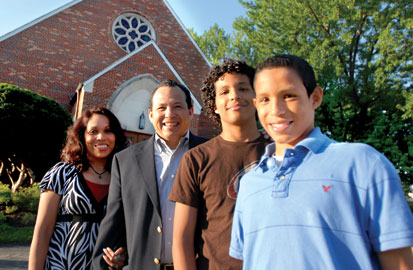John Berkman started this whole thing a few weeks ago by challenging us to rethink our relationship with the factory farming of non-human animals. I responded by fundamentally agreeing with his view while also detailing other problems (including those related to ecology and economics) that make support of factory farming even more seriously problematic. John responded with a convincing argument which attempts to show how eating meat produced in factory farms is, in fact, formal cooperation with evil.
Now, one may not be working with a ‘cooperation with evil’ framework (like John, I think it is particularly useful in our multi-layered and interconnected world/economy) but nevertheless still have important misgivings about participation in the sinful social structures associated with intensive factory farms. And if we have such misgivings, then shouldn’t we now be asking the practical question, “What is to be done?”
In what follows I ask a series of more specific questions designed to provoke thought and discussion about practical decision-making with regard to factory farming:
Should we purchase factory-farmed meat for ourselves? What sort of reasons would justify participation in this kind of sinful social structure? Could mere pleasure or convenience possibly be a viable reason? What about price considerations for those who will have to sacrifice other goods? What if someone is nutritionally deficient?
Should we accept factory-farmed meat given to us by another in the spirit of hospitality? To what lengths should one go to not offend another or to show gratitude? Need one eat a meat like veal? At what point should one become a prophetic witness to the evil structures of factory farming?
Should we buy factory farmed meat for another? Perhaps a child? Perhaps a growing child that is struggling to get protein or other nutrients?
Should Christian (and specifically Catholic) organizations participate in factory farming by purchasing factory farmed meat for community events and meetings? This could be especially dicey if many who are attending do not share the same point of view of the ethical issues in play. Again, to what extent must we serve as a prophetic witness to those who do not share our views?
How should we relate to the non-meat products of factory-farming? Should we think differently about milk? Eggs? Leather shoes and wallets?
Should moral (and other) theologians focus on factory farming (and non-human animals more generally) more often in our courses and research? Could it be that focusing on ‘anthropology’ as the center of our concern is speciesist in a way that is unhelpful and even unjust? Should we recenter our concern in such a way that all value is not ultimately located in the narrowly-conceived interests of human beings?
Should Roman Catholic Bishops, including the Bishop of Rome, speak out against factory farming? It has already been done with regard to related issues of ecological concern. And Pope Benedict, as Cardinal Ratzinger, has clearly condemned factory farming as being at variance with what the Bible understands our proper relationship with other animals to be. Is it time for something more formalized?
For some, seriously engaging these questions–and then acting on the answers–might seem too radical. But we should hardly be surprised at coming to radically counter-cultural conclusions when our culture is so dominated by the kind of self-obsessed consumerism and violence which marginalizes the vulnerable. From the perspective of Catholic Moral Theology, what is demanded of us on these and other issues is, unsurprisingly, quite radical. Indeed, nearly every choice we make–including what we choose to eat, wear, and otherwise consume–has an important moral dimension to it.
So…any answers to any of the questions above?





Great post, with lots of important questions I’ve been chewing over for a while.
I agree that our tradition of remembering the problems involved in cooperation with evil is important when it comes to issues like this, in particular.
I also worry that an emphasis on “cooperation” can exacerbate existing problematic definitions of “responsibility” that I encounter (particularly while teaching undergraduates, who often believe that one cannot be culpable for what one actually does, but at the same time that one might be culpable for what one influences others to do–for this problem I blame the SAW movies). But for issues like this, in which an evil practice is unquestioningly upheld and critiques are countered by all manner of irrelevant counter arguments, the cooperation reminder is important and, I think, effective.
I struggle with the hospitality question. “To what lengths should one go to not offend another or to show gratitude?” Avoiding cooperation with evil, for me, means not eating meat at all. But there are still grey areas (for example, deciding whether to eat non-meat animal products, and whether to convey moral repugnance at the fact that meat is being offered). When overseas I find this question particularly difficult, as hospitality becomes an even more powerful and complex idea.
When offered food nearer to home, hospitality functions as a virtue of the one offering and also, as you have noted, of the one receiving. As a recipient, I am not sure where to draw the line between that which hospitality demands and that which avoiding cooperation demands.
On reflection, I think that one approach to this decision can be to think like a teacher. “In this moment, as this food is offered, in this context and with these relationships interacting, what response best honors both the hospitality of this offering and the injustice involved in what is offered?” A pedagogically attuned response allows me both to be a full person (so I will not actually eat the offered meat) and to find a way to respond that conveys respect (I appreciate the care and the effort that went into preparing to offer this food). A carefully non-aggressive refusal can demonstrate hospitality.
In many settings, a refusal of meat that comes with a moral lesson or with a demonstration of moral repugnance will be read *only* as a confirmation of what many believe vegetarianism to be all about at its core: moral superiority, class superiority, a commitment to the non-enjoyment of life, a failure to respect proper gender roles (when the vegetarian is male), a disdain for family values, a shocking failure to appreciate the lives, the livelihoods, and the perspectives of others, etc. (See above, re. irrelevant counter arguments.)
In such contexts, a friendly, happy, lusty-for-food refusal of meat which comes with an aggressive appreciation of the smells of the food, the creativity of the sauces used, the decisions about whether to bake or to saute the non-meat dishes, the difficulty in finding such good-looking asparagus, etc., can confound these unspoken presumptions about vegetarianism. This confounding is often my goal because this confounding can, in some settings, make more progress than many speeches about factory-farming cruelty.
How is this pedagogical? Perhaps a teaching moment can be answered effectively by remembering, in whatever response we give, that we are at all times wearing a sign that says: “This is what a vegetarian looks like.”
Eat hearty!
Thanks for the great questions of practical morality, Charlie. I admit that I go through these debates in my head numerous times each week, since I am the primary shopper for a family of five.
I personally have somewhat of an aversion to meat, in particular to cooking it. But my kids (and husband, for that matter) LOVE meat. And for the kids, it does seem to be one of the easier ways of getting them the protein and calories that they need. Living on the east coast on one professor’s salary, we don’t have a large grocery budget, which makes buying meat difficult, especially when/if I’m trying to purchase only meat that I think was processed morally (not to mention meat that will be safe for my kids, not contaminated with feces or whatever). Quite possibly in mistaken goodwill, I tend toward buying turkey products for my family – turkey bacon, ground turkey etc. But then my parents show up for a visit, crockpot a roast, heat up a ham, boil some chicken thighs for soup… and my kids go crazy, eating meat like it’s going out of style… or at least, will be disappearing with my parents.
Anyway, I don’t think the answers to your questions are easy, that’s for sure. I’ve known several people who seem to me to have really embraced “moral eating” if you want to call it that. But if I had to categorize these people they would be 1) people who live on farms and process their own animal products and 2) childless people who have the money and time to spare to make sure they are purchasing food morally. I don’t fall into either of those categories (not to make excuses; I know I could do better).
I do think it’s ok to accept factory-farmed meat that’s offered in hospitality. I’ve done this many a time, particularly with hamburgers at cook-outs. I usually try to use it as a mortification; charity over all. I do not generally serve meat when hosting, however. And I also admit to having misgivings about fake-animal products, e.g. the Boca products or even non-dairy creamer. I’m not sure we should be working so hard to engineer foods to taste like animal products in lieu of them.
I just took the kids apple and corn-picking at a family-owned farm that raises turkeys. And it made me think that I wish that farm could show up selling turkey products at my neighborhood farmer’s market, which runs from July to October, and is just down the street from us. If buying un-factory farmed meat were as easy (and affordable) as buying local produce, more people would probably be so inclined. In both Ohio and Iowa, where I’ve lived, it was easy to go in on buying a cow or pig from a local farmer and get meat cuts from that. Maybe it’s just because I’m new out here, but I haven’t run into that option yet (I’m sure it exists, though).
Hopefully this won’t sound speciest, but do you have plans to tackle the banana question? Because I think sometimes even more than meat, I’m ambivalent about bananas. They are nutritional, they make good baby food, they make good smoothies, and kids love them. They are also RIDICULOUSLY inexpensive (a full bunch for only $1.30!); I know there’s injustice involved in getting them from poor banana plantation workers in Ecuador or Honduras to my store. And I heard on NPR bananas are also endangered.
And another speciest question, what about food and beverages that are designed to have little or no calories? Is it just to spend resources on nourishment that is not nourishing, when others are starving?
And in the end, what will be left to eat?